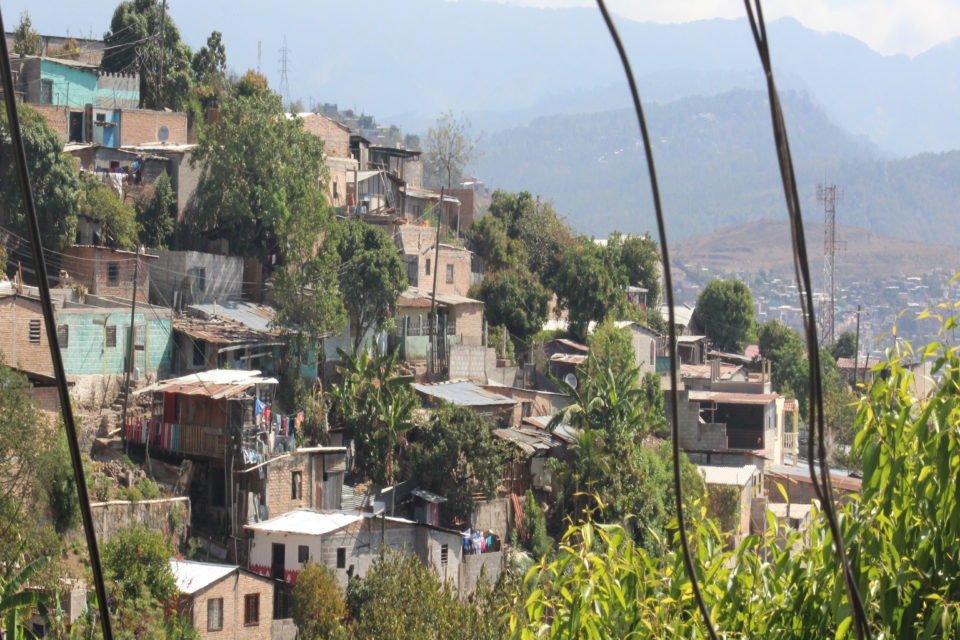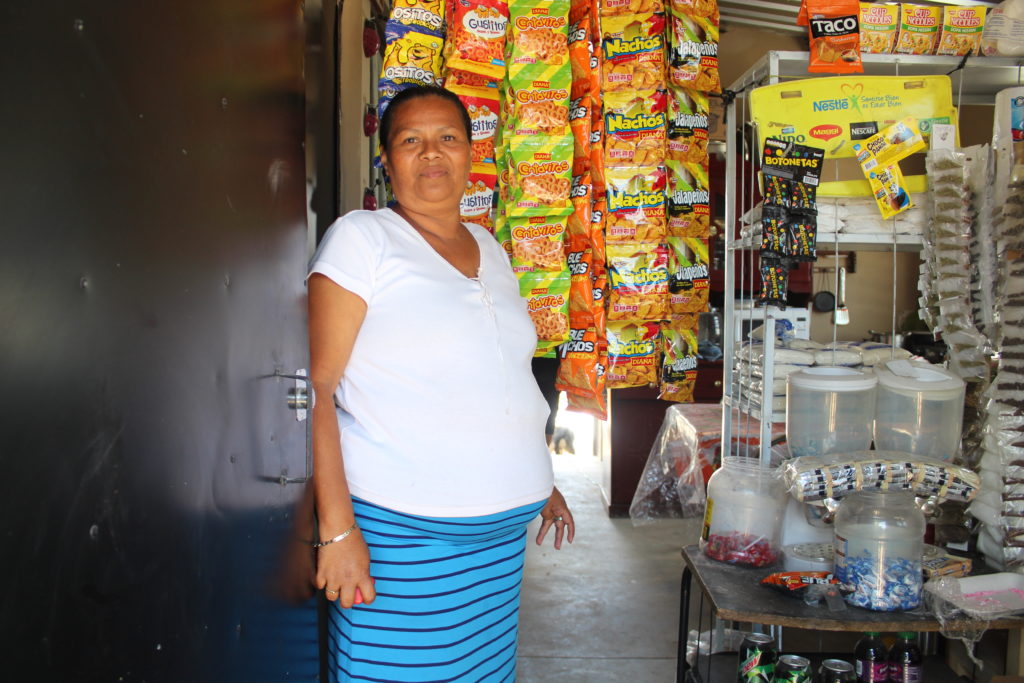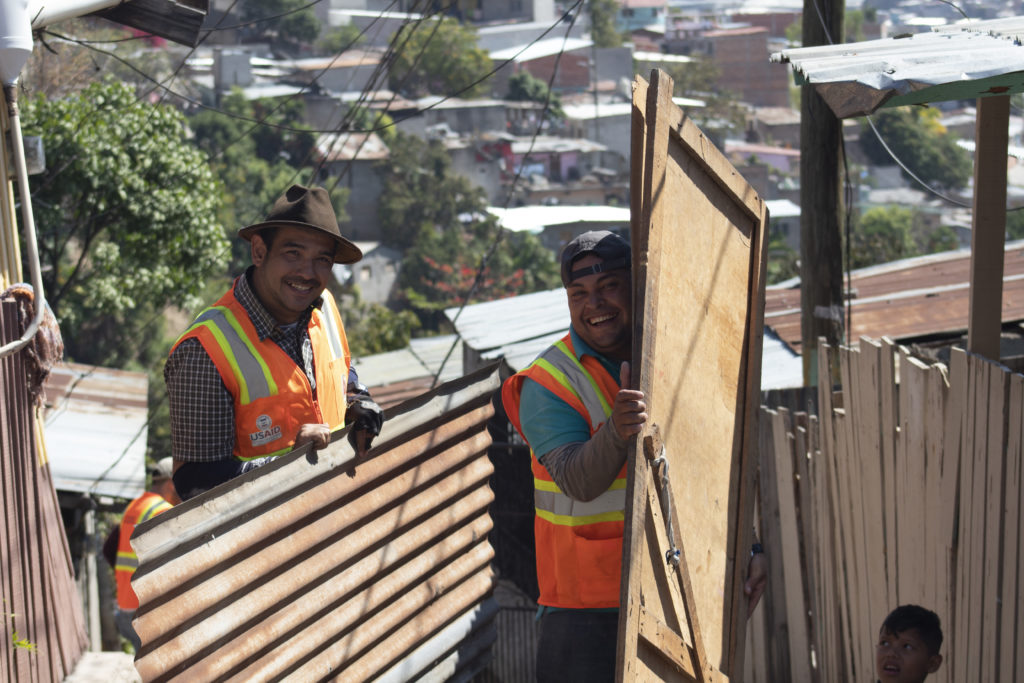 Stories
Stories
August 21, 2019 • 3 min read

Denia Bonilla used to live with her daughters in the high-risk Jose Arturo Duarte neighborhood on the outskirts of the Honduran capital, Tegucigalpa.
Tegucigalpa is vulnerable to natural disasters with close to one million of its inhabitants living in informal settlements without access to basic infrastructure. Every year, heavy rains cause landslides and floods that endanger the population, causing loss of life.
Denia and her family used to be petrified when the heavy rains came, hardly sleeping thinking that their house could collapse at any time.
“The floor of my house was moving, and it was cracked … when the rain came, we could not sleep out of worry. The water was getting through the cracks and the house was flooded …” she says.
But thanks to Barrio Resiliente, a GOAL run resilient neighbourhood project, Denia has been able to relocate to a safer location. And she has also benefitted from business training and seed funding which has given her a livelihood.
According to Ana Luisa Núñez, co-ordinator of the GOAL Honduras Barrio Resiliente programme: “The José Arturo Duarte neighborhood is located in an active mass of landslide, and is an area where there are severely damaged, subsiding homes with cracks in walls and floors.”
To combat this problem the Municipality of the Central District and GOAL Honduras have adopted the Barrio Resiliente neighborhood approach, aimed at increasing resilience by improving conditions for land use, sustainable development of vulnerable areas, and addressing socioeconomic systems.
The municipal mayor of the central district and GOAL, in close collaboration with CONVIVIENDA and The Office of U.S. Foreign Disaster Assistance OFDA, of the United States Agency for Development (USAID) USAID / OFDA, supported the construction of 31 social houses where families such as Denia’s were relocated from the José Arturo Duarte and José Ángel Ulloa neighborhoods.
GOAL and the Municipality of the Central District also provide support to families through training on interpersonal relationships, home hygiene and the handling of sanitary facilities.
In addition, Denia along with other families, have been beneficiaries of the market component of the Resilient Neighborhood Program, and have participated in training on business administration, supplier relationships and the formation of business networks. They also received seed capital to start a business.
On moving home Denia said: “At the beginning it was difficult, because one does not want to leave the place where you have lived for 30 years, but at the same time it was nice because we understood that staying there was a risk for us … now I am on the edge of the street and I feel safe, it does not crack the street does not flood”…
Denia’s plan for the future is to expand her business and make improvements to her home. “My business has turned out very well. Here I sell more than where I was … I’m very thankful to GOAL for everything, because not only have they helped me with my house, but also thanks to the trainings I have more skills and here I feel safe with my daughters…”
GOAL and the Municipality, for their part, continue to monitor the program permanently, building resilience and contributing to improving the living conditions of the inhabitants of vulnerable areas, with the active participation of the communities.
Read GOAL Honduras’s Resilience for Social Structures (R4S) manual here.


